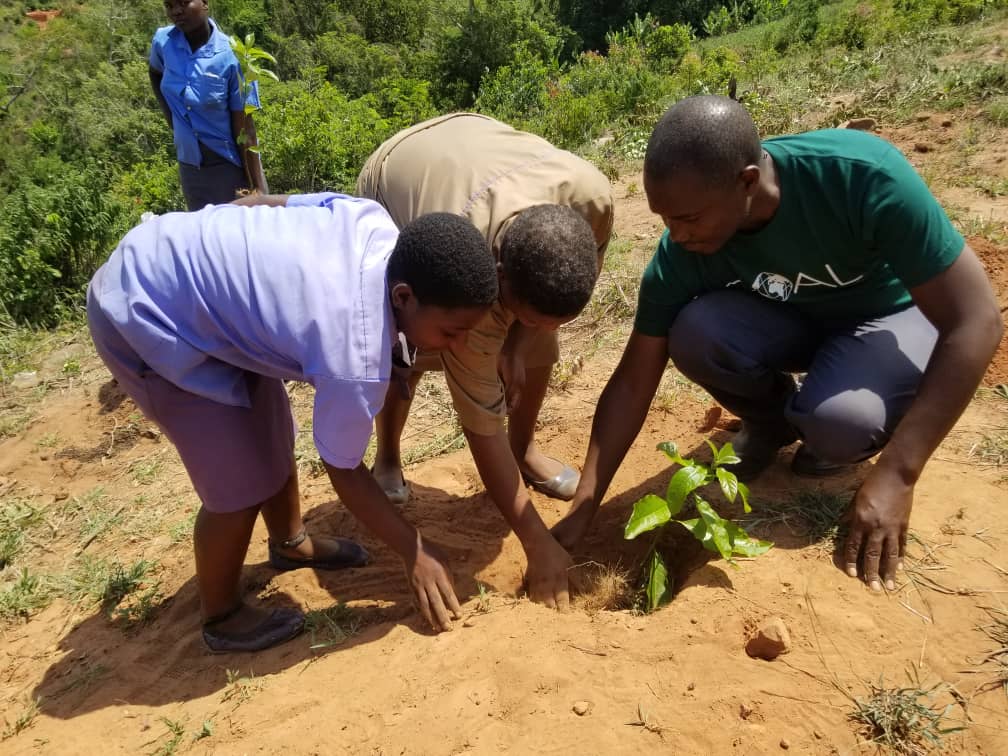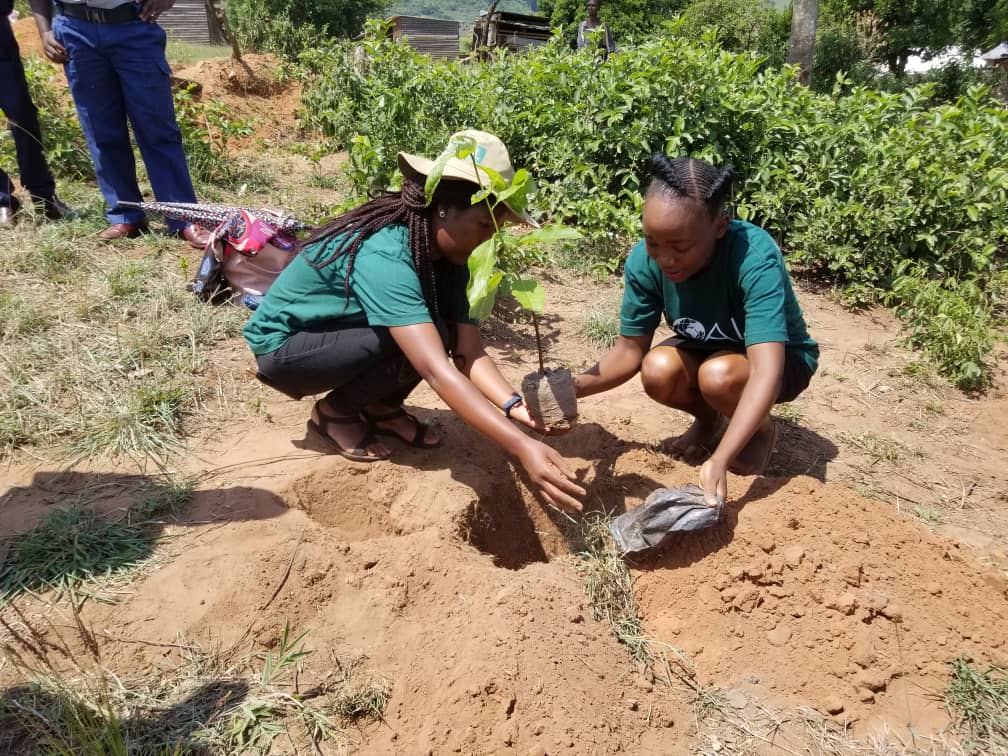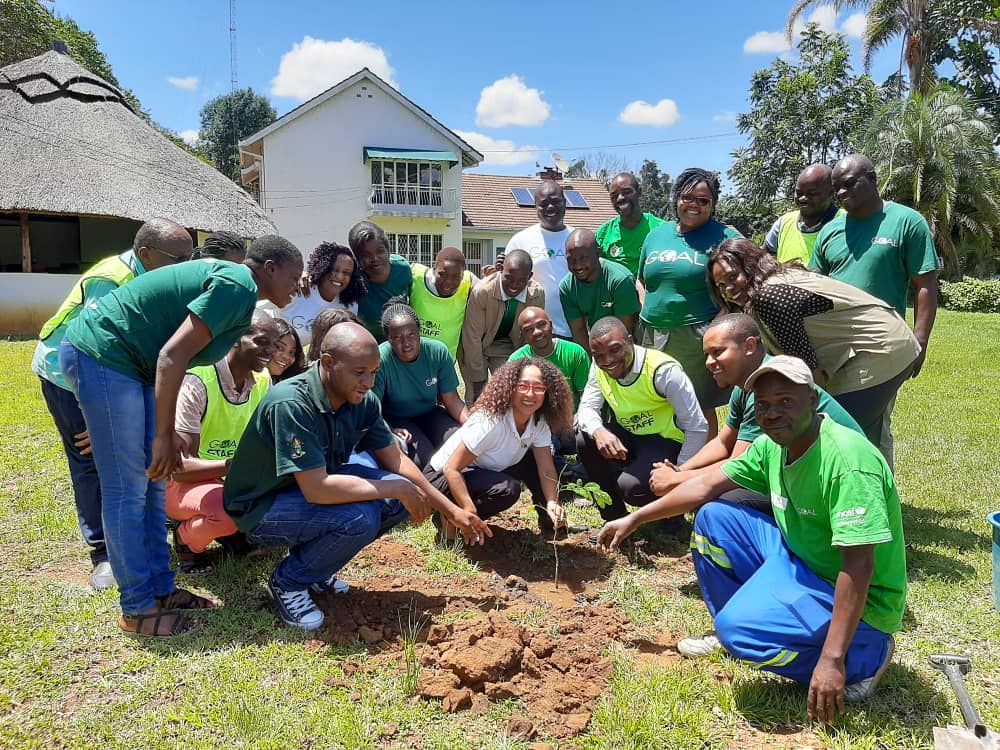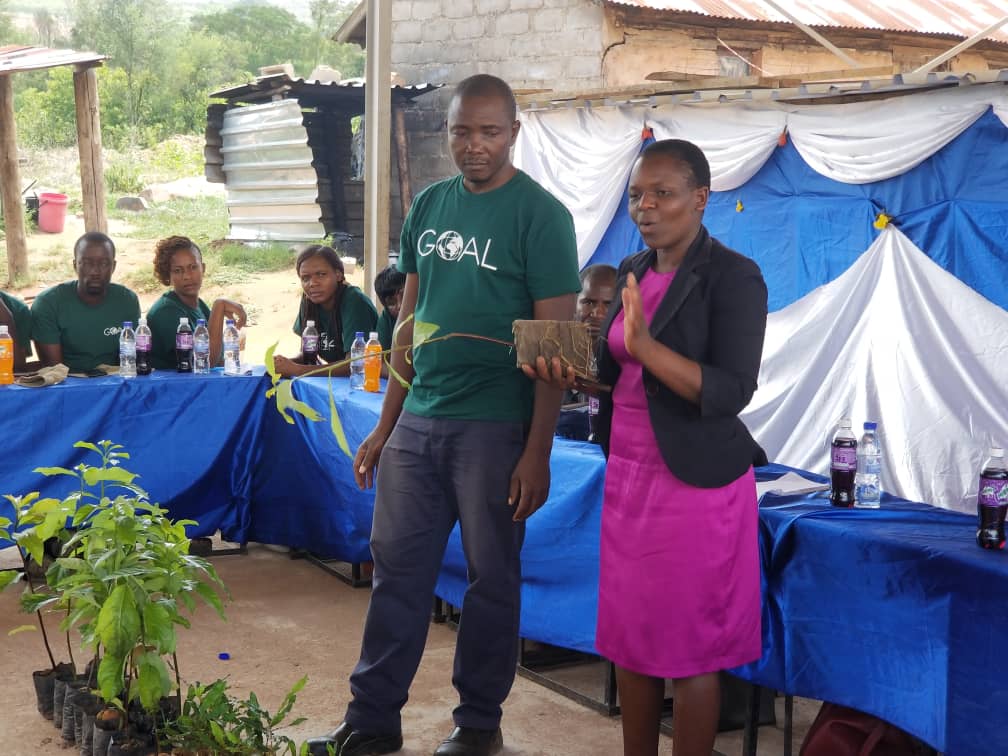GOAL Zimbabwe staff, along local community members, this week planted 114 tree seedlings in Harare, Chimanimani and Chipinge districts as part of National Tree Planting Day commemorations. The 114 trees represent the number of GOAL Zimbabwe employees at country level, and were planted in areas worst affected earlier this year by Cyclone Idai, which was as a result of climate change.
By Thandolwenkosi Sibindi
The first Saturday of December every year marks National Tree Planting Day, organised by the Forestry Commission to motivate the nation to plant and conserve trees in order to enhance household food security and to mitigate the impacts of climate change.
The theme of this year’s tree planting day is, “Fruit Trees for Food Security and Nutrition.” Fruit trees planted included granite garcinia/mutunduru, nartjies, macadamia, peach, oranges and avocado.
GOAL Zimbabwe did the planting in collaboration with local stakeholders including the Forestry Commission, the Ministry of Agriculture, Lands and Rural Resettlement, the Police, the Ministry of Education, the Environmental Management Agency (EMA), schools and local councillors.
As part of its Cyclone IDAI early recovery programmes in Chipinge and Chimanimani GOAL has been contributing to Sustainable Development Goal (SDG) 15 aimed at protecting, restoring and promoting sustainable use of terrestrial ecosystems.
GOAL Zimbabwe’s Food Assistance for Assets and Lean Season Assistance projects have been helping communities affected by the Cyclone to take charge of their environment by planting trees.
These afforestation efforts in Chimanimani and Chipinge are contributing towards restoring the vegetation lost during Cyclone IDAI. These are also efforts to preserve the environment and infrastructure in case similar calamities take place.

Zimbabwe has been experiencing climate change through shifting rainfalls patterns, recurrent droughts and floods in recent years. These have posed a major threat to economic and food security of vulnerable communities, especially farming communities who depend on farming for their survival.
The greatest impact of climate change this year has been Cyclone IDAI, one of the worst tropical cyclones to hit the country. The cyclone caused loss of lives and significant damage to infrastructure, properties, crops, and livestock at an estimated $622 million. The cyclone also caused loss of vegetative cover, especially trees, further resulting in forest depletion and degradation in Chipinge and Chimanimani.
Rural communities also utilise trees for firewood for cooking, brick moulding, thatching homes, developments increase rates of soil erosion, soil degradation. As such, building a culture of afforestation in targeted communities is a key contribution towards sustainable development.
Gabriella Prandini, Country Director for GOAL Zimbabwe said: “As GOAL Zimbabwe, we wanted to be able to commemorate this day with the communities we have worked with for a number of years who have been the most affected by Cyclone IDAI. Having marked this day with the relevant stakeholders such as Forestry Commission, Ministry of Agriculture, Lands and Rural Resettlement, police, Ministry of Education, Environmental Management Agency (EMA), schools and local councillors, we ensured that communities were also given key messages on the importance of reforestation and awareness of climate change.”




